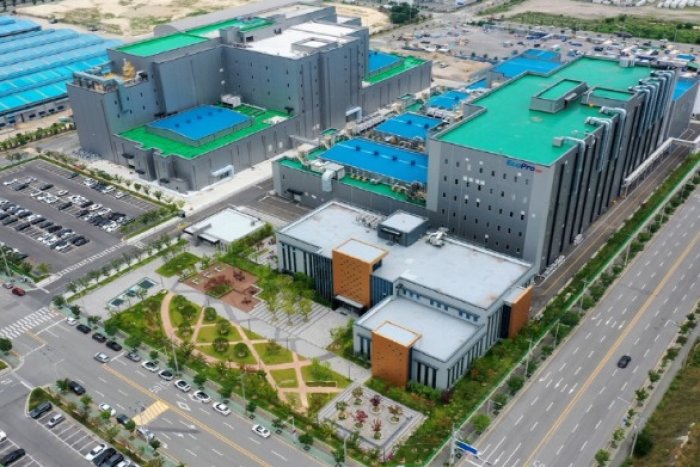EcoPro BM’s headquarters and manufacturing facilities
MUNICH, Germany – EcoPro BM Co., a South Korea cathode material producer, is in close discussion with a domestic carmaker to produce cathode materials for sodium-based batteries, emerging as an alternative to lithium-ion batteries for electric vehicles.
Lee Dongwook, EcoPro’s technology chief, said the company has recently begun discussions with the unidentified Korean carmaker to release EVs embedded with sodium-ion batteries.
“We’re in the completion stage for the cathode material development, and we will need to monitor the market conditions of EV batteries,” he told a news conference held on the sidelines of InterBattery Europe 2024.
Compared with lithium-ion batterie, the most widely used for EVs, sodium-ion batteries use sodium instead of lithium to generate electricity.
“We have been developing sodium-ion-related technology from two years ago and have reached a level where it can be produced immediately,” said Lee.
But it has yet to mass produce them in the absence of demand and needs to monitor the market conditions of EV batteries, he told reporters.
EcoPro BM’s cathode production lines
Sodium-ion batteries are regarded as a cost-competitive, next-generation battery and also an alternative to the lithium-ion phosphate (LFP) batteries used for low-end EVs.
Sodium is easier to obtain than lithium, an essential metal for NCA and NCM as well as LFP batteries. The mineral can be found in rock salts and brines around the globe.
It does not deteriorate in performance even at low temperatures below minus 20 degrees Celsius, so boasting high stability.
EcoPro believes it has surpassed China in terms of sodium cathode producing technology.
CATL Co., a Chinese battery manufacturer, has been producing sodium-ion batteries for supply to Cherry Automobiles Co.
EcoPro is capable of producing cathode materials for sodium-ion batteries on the same production lines as those for lithium-ion cathodes, so it would not require long time to launch their production.
Despite its lower energy density that lithium-ion batteries, Lee said it will be able to bring the technology to the level of LFP batteries within one to two years.
Domestic battery manufacturers have mainly focused on ternary batteries made of nickel, cobalt and aluminum (NCA), or nickel, cobalt and manganese (NCM).
That resulted in them losing their ground to Chinese rivals in the LFP battery segment, where Chinese companies have improved their performance.
Still, battery industry observers said it would take more time for sodium-ion batteries to replace lithium batteries due to their relatively high prices.
“In the current situation where demand for electric vehicles has waned, it is difficult for sodium to be an alternative. Lithium is cheap enough,” said a battery company official.
POSCO Future M Co. is understood to focus on developing cathode materials for LMFP batteries that add manganese to LFP.
By Sang Hoon Sung
uphoon@hankyung.com


Leave a Reply